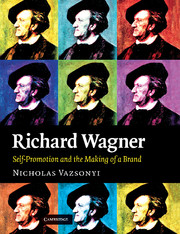5 - Hub
Published online by Cambridge University Press: 05 May 2010
Summary
In his book about the history of the Bayreuth Festival, Frederic Spotts suggests that “Wagner without Bayreuth would have been like a country without a capital, a religion without a church.” Typically for Wagner studies, Spotts limits himself to political and religious analogies, though he could just as easily have written “a multi-national company without a corporate headquarters.” Similarly incomplete is his claim that “Wagner invented the modern music festival.”
The idea of a music festival was not new when Wagner conceived and later realized his vision for one. London boasted a commemorative Handel festival in 1784 and, in the same year, Birmingham launched its Triennial Musical Festival which would become one of the longest-running such events. By the first decades of the nineteenth century, music festivals were also established in Germany. Such occasions combined the renewed idealization of ancient Greek traditions with the urge to articulate a coherent German national identity, with its special emphasis on music. The longest-standing such tradition in Germany was the so-called Lower Rhine Music Festival, launched in 1818 and running through most of the century. This three-day event was held annually in the late spring during Pentecost, rotating its venue between a group of cities including Düsseldorf, Cologne, and Aachen. It was organized by amateurs and, in the early years, many of the orchestral and choral performers were also dilettantes, replaced increasingly by professionals during mid-century.
- Type
- Chapter
- Information
- Richard WagnerSelf-Promotion and the Making of a Brand, pp. 169 - 204Publisher: Cambridge University PressPrint publication year: 2010



